How many times do we have to say "don't slap your brand all over tragedies"? How many times do we have to ask who approved using mass grief to sell products? How many more times?
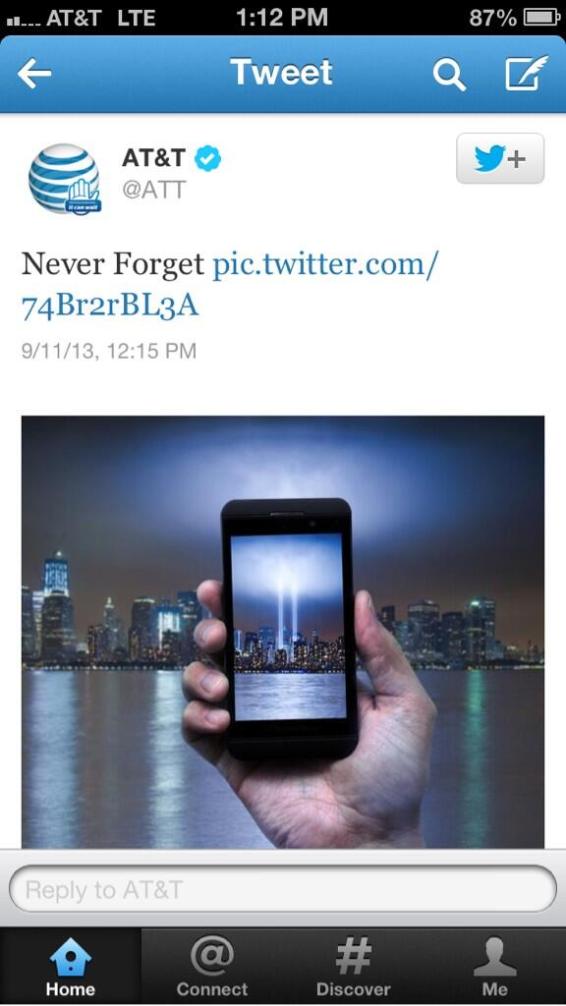
Retweeting is not a way to pay your respects
Facebook and Twitter didn't exist when 9/11 happened, and it's hard to imagine what the reaction would have been like if they had. The volume of grief and disbelief might well have crashed Twitter. But while it's perfectly OK to tweet that you're thinking of the people who lost their lives, this kind of thing is not:
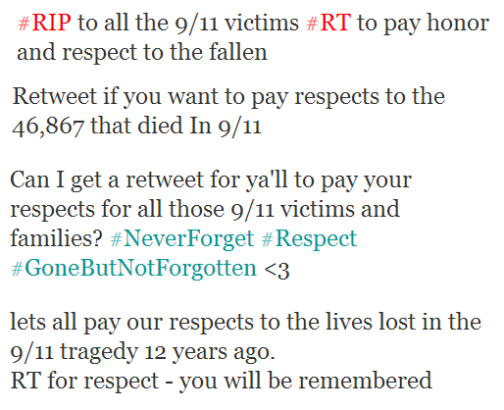
This year, an account sprang up just to do that. It already has eight thousand followers despite its four tweets. It appears to have no association with any of the victims' charities, and it's not accomplishing anything. All it does is ask for retweets. It's a parasite, frankly.
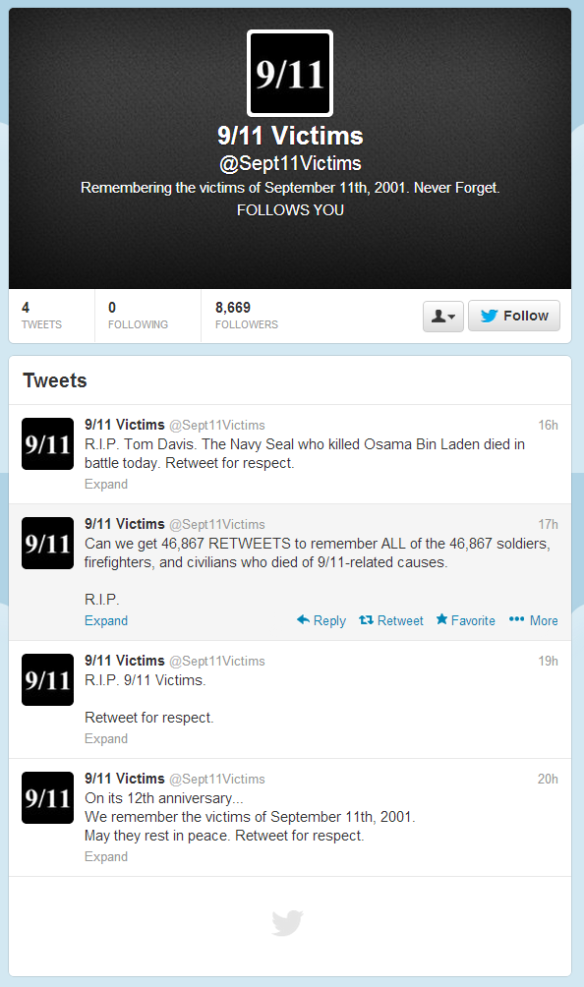
Just in case anyone is unclear on this, retweeting does not in any way show respect to the dead, or ease the grief of their families. Asking for retweets is a shameless, selfish way to promote your own account and nothing more. If you want to pay your respects, pay them. Send up a prayer, visit the memorial, or by all means tweet your sentiments. But adding "Retweet to show respect" strips your message of any humanity, and turns it from a genuine statement of grief to a shameless plug for you.
Probably the most egregious example of this was perpetrated by MSN when BeeGee Robin Gibb died:
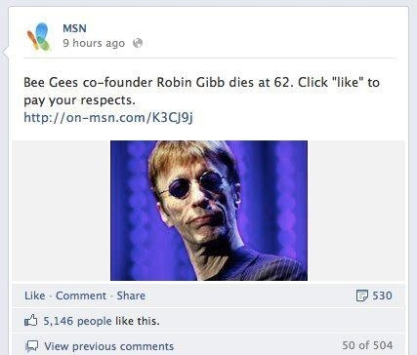
That call to action actually makes me shudder. How can anyone reduce grieving for the dead into such a mindless, meaningless action? And how do brand and community managers of huge, worldwide companies keep making this mistake? Why is it always down to the Twitter community to point out the huge failing of humanity here?
I thought AT&T's inevitable apology might provide some explanation of what they were thinking.
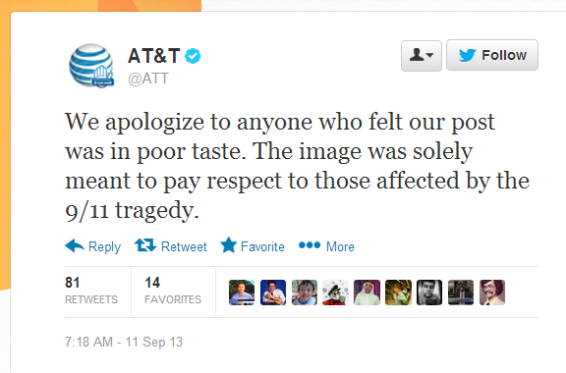
Clearly, what they were thinking was that their image of a great big honking smartphone taking up the foreground of the tribute to a mass grave was somehow "paying respect."
Somehow, I doubt the families of the fallen would agree.
Holly Brockwell blogs at copybot.wordpress.com, where this post first appeared.